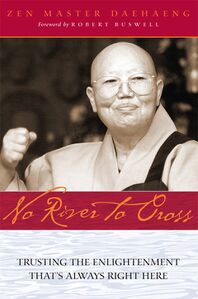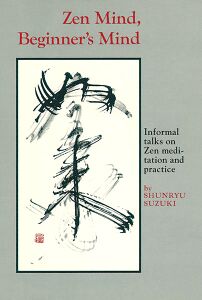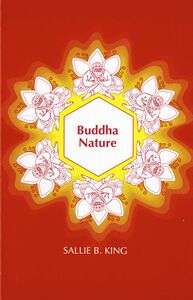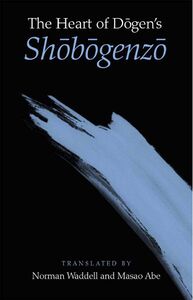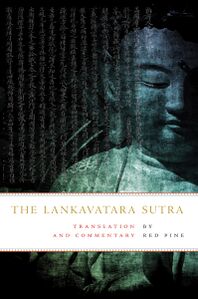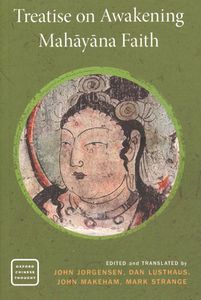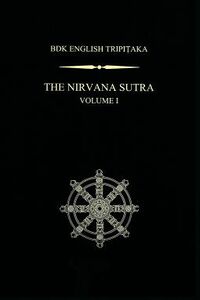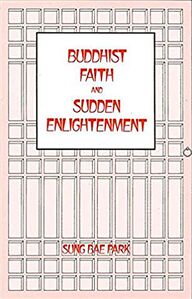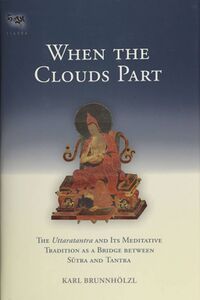Begin Discovering Your Buddha-Nature: Difference between revisions
No edit summary |
No edit summary |
||
| Line 8: | Line 8: | ||
Buddha-Nature in East Asia | Buddha-Nature in East Asia | ||
There is an impressive lineage of Zen writers that that have commented on the buddha nature teachings. Dōgen (1200–1253), whose instructional lectures were collected in his Shōbōgenzo, is one such Japanese thinker and practitioner whose writings on buddha nature have been published in numerous volumes. For example, Dōgen made the controversial and insightful decision to translate the above passage from the Chinese edition of the Mahāparinirvāṇa Sūtra as, “Living beings all are buddha nature.” Many other translations simply state that all beings have Buddha nature. Take a peek at the unique perspective Dōgen provides on buddha nature in his commentary on the above passage from the Mahāparinirvāṇa Sūtra found in his Treasury of the True Dharma Eye, | |||
Know that the are of all are buddha nature is beyond are and are not. All are are the buddha words, the buddha tongue. They are the eyeball of buddha ancestors and the nostrils of patched-robed monks. The words all are are not limited to embryonic beings, original beings, inconceivable beings, or any other kind of beings. Furthermore, they do not mean causal beings or imaginary beings. All are are free from mind, object, essence, or aspects. This being so, the body, mind, and environs of Living beings all are [buddha nature] are not limited to the increasing power of action, imaginary causation, things as they are, or the practice realization of miraculous powers. | |||
Such excerpts serve to guide readers toward a more complete understanding of the unique position Dōgen takes when addressing buddha nature. In the remainder of the chapter, difficult points are introduced in relation to this topic such as: the scope of buddha nature and its interconnectedness to living and inanimate beings, buddha nature and the importance of paradox and kōan practice, and narratives that colorfully illustrate Dōgen’s own journey of realization. His commentaries are included in various titles by Shambhala Publications such as the Treasury of the True Dharma Eye, Zen Enlightenment, Rational Zen, and The Essential Dōgen.([https://www.shambhala.com/buddha-nature-a-readers-guide-to-the-cause-of-awakening/ Shambhala Publications]) | |||
Multimedia | Multimedia | ||
<div class="text-80 text-muted position-absolute" style="bottom: 7px; right: 10px;">[[Site Guide|Complete Site Guide]]</div> | <div class="text-80 text-muted position-absolute" style="bottom: 7px; right: 10px;">[[Site Guide|Complete Site Guide]]</div> | ||
</div> | </div> | ||
Revision as of 14:44, 14 December 2020
Buddha-Nature in East Asia
There is an impressive lineage of Zen writers that that have commented on the buddha nature teachings. Dōgen (1200–1253), whose instructional lectures were collected in his Shōbōgenzo, is one such Japanese thinker and practitioner whose writings on buddha nature have been published in numerous volumes. For example, Dōgen made the controversial and insightful decision to translate the above passage from the Chinese edition of the Mahāparinirvāṇa Sūtra as, “Living beings all are buddha nature.” Many other translations simply state that all beings have Buddha nature. Take a peek at the unique perspective Dōgen provides on buddha nature in his commentary on the above passage from the Mahāparinirvāṇa Sūtra found in his Treasury of the True Dharma Eye,
Know that the are of all are buddha nature is beyond are and are not. All are are the buddha words, the buddha tongue. They are the eyeball of buddha ancestors and the nostrils of patched-robed monks. The words all are are not limited to embryonic beings, original beings, inconceivable beings, or any other kind of beings. Furthermore, they do not mean causal beings or imaginary beings. All are are free from mind, object, essence, or aspects. This being so, the body, mind, and environs of Living beings all are [buddha nature] are not limited to the increasing power of action, imaginary causation, things as they are, or the practice realization of miraculous powers.
Such excerpts serve to guide readers toward a more complete understanding of the unique position Dōgen takes when addressing buddha nature. In the remainder of the chapter, difficult points are introduced in relation to this topic such as: the scope of buddha nature and its interconnectedness to living and inanimate beings, buddha nature and the importance of paradox and kōan practice, and narratives that colorfully illustrate Dōgen’s own journey of realization. His commentaries are included in various titles by Shambhala Publications such as the Treasury of the True Dharma Eye, Zen Enlightenment, Rational Zen, and The Essential Dōgen.(Shambhala Publications)
Multimedia
The writer-in-digital-residence is the recipient of a grant designed to support Tsadra Foundation’s Buddhist literacy projects that connect the larger public with academic research and advance understanding of specific aspects of Tibetan Buddhist traditions. Writers help to curate this online resource and write essays on the history, philosophy, and practices associated with buddha-nature teachings and tathāgatagarbha theory in Tibet. These essays are addressed to an audience of educated readers of Buddhist materials and Buddhist practitioners.
Lopen (Dr) Karma Phuntsho is one of Bhutan’s leading intellectuals. He has finished monastic training in Bhutan and India before he pursued a M.St in Classical Indian Religions, and D.Phil in Oriental Studies at Balliol College, Oxford. He was a researcher at CNRS, Paris, a Research Associate at Department of Social Anthropology and the Spalding Fellow for Comparative Religion at Clare Hall, Cambridge University, and Research Consultant at University of Virginia. An author of over hundred books and articles including the authoritative History of Bhutan and Mipham’s Dialectics and the Debates on Emptiness, he speaks and writes extensively on Bhutan and Buddhism. Read a complete bio.
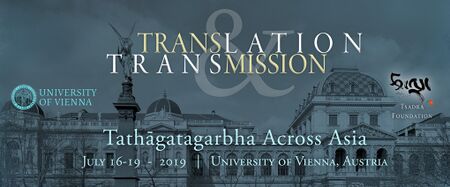
See all presentations
Klaus-Dieter Mathes
Ngawang Jorden
Jacqueline Stone
Ringu Tulku
Tokpa Tulku
The Fourteenth Dalai Lama Tenzin Gyatso
Ringu Tulku
Kirti Tsenshab
Khenpo Sodargye
Orgyen P'huntsok
